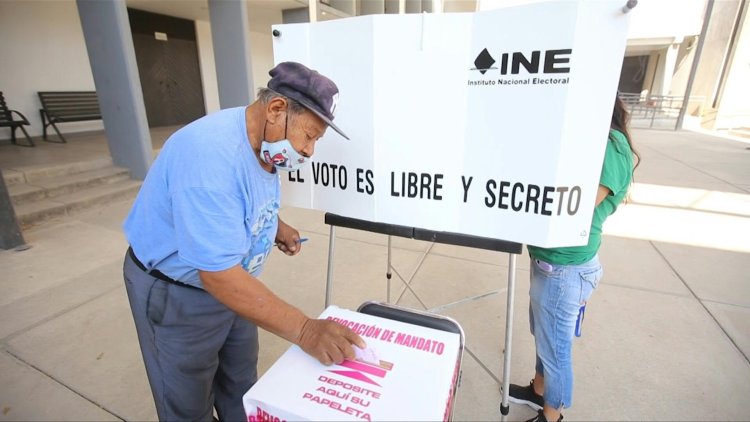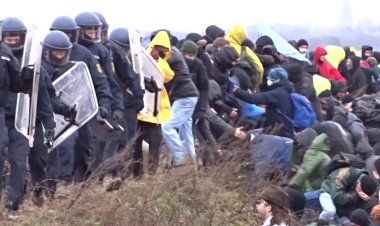Mexicans vote whether president should stay or go

Mexicans voted Sunday in a divisive national referendum championed by President Andres Manuel Lopez Obrador on whether he should step down or complete his six-year term.
While recall elections in other countries tend to be initiated by political opponents, Mexico's vote is the brainchild of Lopez Obrador, who enjoys an approval rating of nearly 60 percent.
The 68-year-old president, who was elected in 2018, cast his vote in front of the press with his wife at a polling station near the presidential palace.
As promised, he intentionally spoiled his ballot with the words "Long live Zapata!" in homage to a Mexican revolutionary hero.
"Let no one forget that the people are in charge," declared López Obrador, who had vowed not to vote for himself to remain impartial but said it was important to take part.
Supporters of the referendum -- the first of its kind in Mexico -- say it is a way of increasing democratic accountability, giving voters the opportunity to remove the president due to loss of confidence.
"Now we have the chance to change what's not right. There have been presidents who, after being elected by the people, ended up serving other interests," Benigno Gasca, a 57-year-old mathematician and musician, said .
But critics see it as expensive propaganda and an unnecessary distraction from the many challenges facing the country, including drug-related violence, poverty and the rising cost of living.
"It's a useless exercise -- money thrown away," said Laura Gonzalez, a 62-year-old retired teacher.
Experts said turnout was likely to be well below the 40-percent level needed for the vote to be legally binding.
Opposition parties urged Mexicans to abstain from voting in what they call a "populist exercise."
Some 93 million voters were eligible to participate in the midterm referendum, which was incorporated into Mexico's constitution in 2019 at Lopez Obrador's initiative.
Most of the signatures that were collected in order for the vote to happen came from his supporters.
Given the popularity of the anti-corruption austerity advocate, his presidency is not at risk "at all," said political analyst Martha Anaya.















